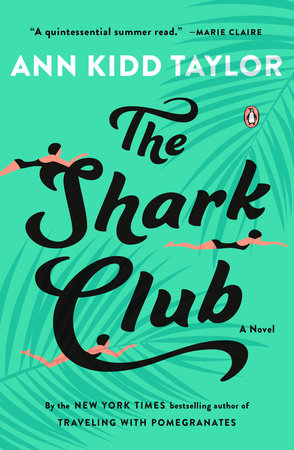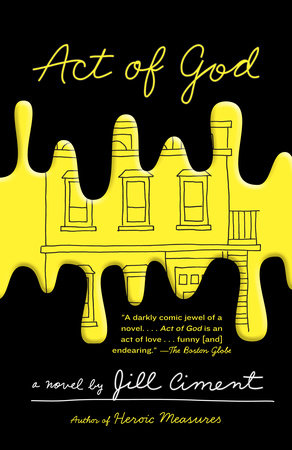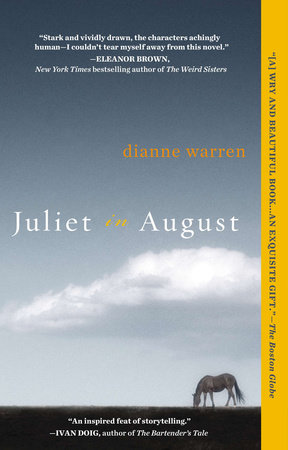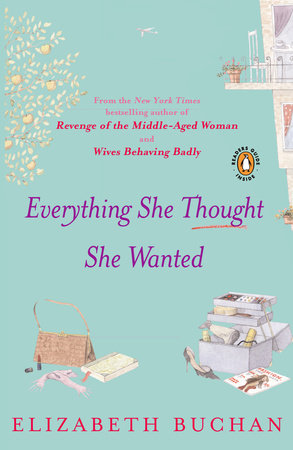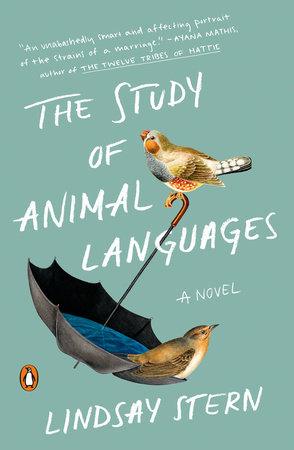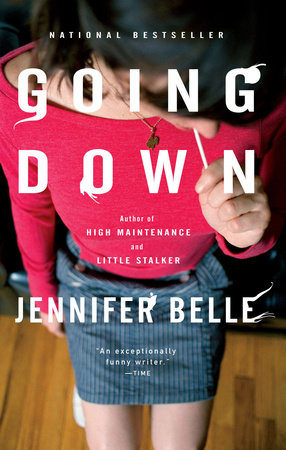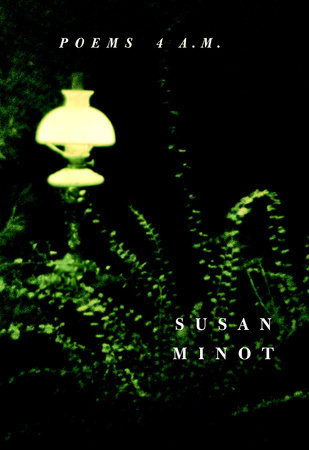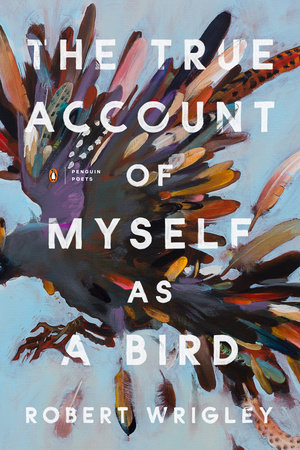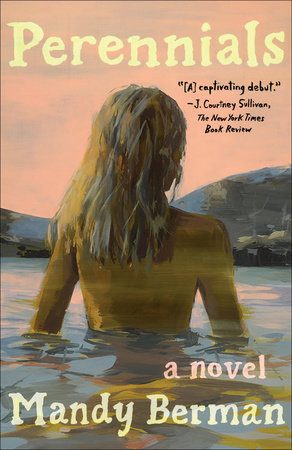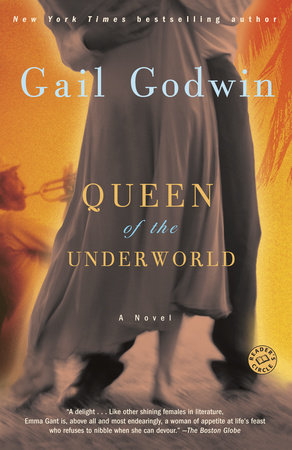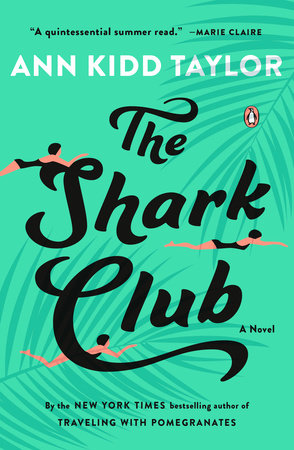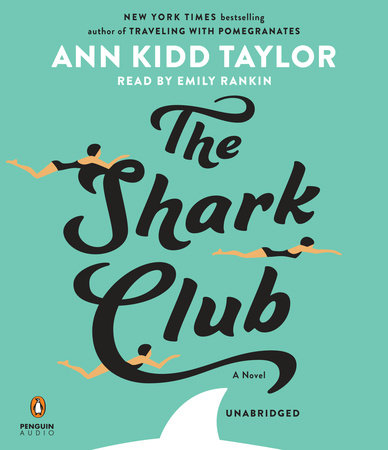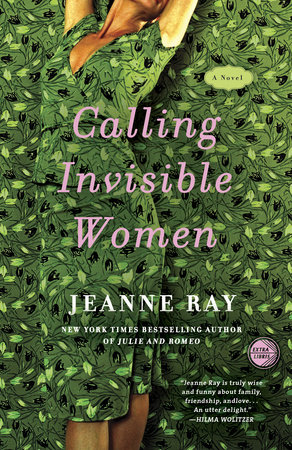Author Q&A
A Conversation with Ann Kidd Taylor
Although The Shark Club is your debut novel, this isn’t your first experience writing a book. You’re a published memoirist, and cowrote Traveling with Pomegranates with your mother, Sue Monk Kidd. How different was it this time, both writing a novel, and writing solo?
I loved writing memoir, and the experience of collaborating with my mother was one I wouldn’t trade for anything. While writing Traveling with Pomegranates I relied on my travel journals, itineraries, photographs, video I’d taken, and, of course, my memories. The process of writing a memoir, of rendering memories and experiences into a relatable story that intertwined with my mother’s story was a challenge, but one we relished. As my mom and I worked on the book, we each wrote separately in our houses and would come together to read each other’s chapters and edit. When it came to writing solo, to keep the fears and anxieties at bay, I focused on writing a story I loved and the story I most wanted to tell. Nevertheless, there’s nothing like a blank screen to make me feel marooned from decent ideas, even words and sentences. The other most obvious difference between writing The Shark Club and writing Traveling with Pomegranates was how freely and wildly I could engage my imagination in fiction. There was something intoxicating about treading into my imagination, but I found both experiences really satisfying.
Your protagonist, Maeve Donnelly, is such a strong character—many early readers have said that they feel like they really know her. How were you able to come up with such a fully fleshed out young woman? Is she based on anyone you know?
You can’t imagine how happy I am to hear that readers feel they know Maeve. Maeve feels entirely real to me, too! While she isn’t based on anyone I know, I was inspired by the work of various intrepid women working in the field of marine science. In particular, oceanographer, Dr. Sylvia Earle, fondly known as Her Royal Deepness. Years ago I heard an interview with Dr. Earle on The Bob Edwards Show. Listening to her talk about the oceans being the blue heart of the planet, I was mesmerized. She pointed out that when Google Earth mapped the world, it left out the oceans. We think of oceans as otherworldly, she said, but they’re as much a part of our world as terra firma. I remember the awe I felt as she described being underwater in a submersible and suddenly encountering an octopus. The fluid creature hovered for a long time in front of the submersible’s window, watching her while she watched it back. The two of them seemed to be having a moment, a shared curiosity, a connection. I’d never heard a scientist speak with such poetry and spiritual reverence for her subject. When given the opportunity to make a wish as the recipient of the 2009 TED Prize, she called on people to do whatever they could to ignite public support for the oceans. She inspired Maeve’s beliefs regarding the oceans and its creatures not only scientifically, but also as worthy of protection, reverence, and respect. While I don’t share Maeve’s scientific background or her brazen ability to study sharks up close, we share viewpoints about the environment. Maeve would say oceans and sharks are vital to the health of the Earth and vital to humans. She would also say they are valuable regardless of their benefit to us humans. On those points, I’m with Maeve.
When the book opens, Maeve is turning thirty years old. I remember turning thirty and happily saying good riddance to the angst and uncertainties of my twenties. I also remember that it felt like a “big” birthday in that there existed some imposed ideas about turning thirty, especially for women. It seemed as though the cultural expectation was that many of women’s desires, struggles, and challenges around career and family should be worked out by then, and with that comes a lot of pressure. I wanted Maeve to confront those culturally imposed ideas, but also her self-imposed ideas around turning thirty. Her desires and questions are like those of a lot of young women I know. Maeve is passionate about her work and she wants a family. As Maeve says on her thirtieth birthday, all the clocks tick louder. But she is also dealing with her unlived life. I wanted to portray a fully fleshed out young woman. I hope readers see some of their common yearnings and struggles in Maeve.
The action in the book feels equally fleshed out. What kind of research did you do in order to write scenes in which Maeve swims with sharks and investigates a local, illegal shark-finning operation? What experiences enabled you to depict Maeve as such a believable marine biologist?
I wanted to get as close to sharks as I could without actually swimming around with them the way Maeve does. A biologist at the Rookery Bay reserve not far from my home was a valuable resource and invited me to join one of his shark-tagging surveys in the Ten Thousand Islands. I went along and spent a late night waiting and watching for sharks and soaking up everything I could. There’s a chapter in the book in which Maeve and her crew go out shark tagging that’s based on the extraordinary experience I had that night. Because I’m not nearly as brave as Maeve, I preferred to observe the various species of sharks from behind glass at the Mote Marine Laboratory and Aquarium in Sarasota, Florida. Of course, there are voluminous books, as well as web videos, TV shows, and documentaries I consulted. Living so close to the gulf, I spent time in the water swimming, floating, and listening to the sounds beneath the surface. I didn’t have any shark encounters, but all my research told me that sharks are so magnificently equipped they could sense my heartbeat from quite a distance. As for shark finning, tragically, there are too many news articles about the shark fin trade. I just read a recent Miami Herald article about the discovery of shark fins on a Key West shrimp boat. Shark finning is gruesome and cruel. I was horrified and outraged when I watched some video footage that was secretly taken of the act. It wasn’t too difficult to imbue Maeve with a fiery disposition when it came to shark finning.
You modeled Maeve’s Florida hometown of Palermo after Marco Island, where you lived for seven years; you’ve also said that moving from Charleston to Marco Island was a “creative explosion” for you. What was it about Marco Island that inspired you? How did you foster and maintain that inspiration?
Yes, Marco Island was very much in my mind when I was creating Palermo. Both are places of extravagant natural beauty and wonderful, quirky Florida ambience. Where else can you find mailboxes that are shaped like dolphins that wear Santa hats in December and Uncle Sam hats in July? There’s no doubt that moving to the Gulf Coast of Florida infused inspiration, color, and energy into my writing of The Shark Club. The novel’s backdrop came to life for me in a whole new way. Living among the lush variety of palm trees, birds of paradise, hibiscus, burrowing owls, manatees, dolphins, sting rays, and, of course, the occasional shark sighting enriched Maeve’s world and mine. As I took morning walks, the noise of grocery lists, chores, and to-do lists fell away as I took in the world around me and pondered Maeve’s next moves. I thought of my walks as creative exercise, which admittedly suits me better than actual exercise. There’s a Yeats quote I love. “I went out to the hazel wood, / Because a fire was in my head.” Walking is my way of fostering inspiration and dealing with the fire.
The Hotel of the Muses, Maeve’s grandmother’s literary-themed hotel—complete with readings and book talks, a room-to-room library cart, all eighty-two guest rooms dedicated to great authors, regular “author birthday parties” for deceased authors, and an annual book bash where attendees dress like their favorite authors or literary characters—sounds like an amazing place for a book lover to stay. Please tell us that it’s based on a real place, and where we can find it!
I know—as Liz Lemon aka Tina Fey said, “I want to go to there!” I wish the Hotel of the Muses existed, but I pretty much conjured it up. I’m sure I was creating my idea of a dream hotel. Early in the development of The Shark Club, I was drawn to the idea of a literary hotel as a setting. To me, hotels have a lot of mystique. The idea of checking into a hotel and checking out—being out of routine, out of the ordinary, I think—introduces the openness to an out-of-the-ordinary experience, of being in a place, even temporarily, where our selves and souls take reprieve. Part of what I love about the Hotel of the Muses is that it’s the creation of Maeve’s grandmother Perri. The hotel is permeated with her personality, her love of literature, and the delight she gets from books. While the Hotel of the Muses is imagined, I was inspired somewhat by the Biltmore Hotel in Coral Gables, Florida. Its interior has a Mediterranean meets Old Florida feel and a rich history to go with it. It’s a pretty special place. They just need a book trolley.
While Maeve’s love life is complicated, it’s not her main focus, and it frequently takes a backseat to other pressing matters in her life. In fact, the strongest relationships in The Shark Club seem to be those between women: between Maeve and her amazing, eccentric grandmother Perri, and between Maeve and her ex-fiancé’s precocious, shark-loving six-year-old daughter, Hazel. Was this intentional, and was it important to you to write a strong, independent protagonist?
Not only was it intentional to write Maeve as a bright, brave young woman in her pursuit of her life, grappling with the most human and fundamental questions, it was important to me to portray important relationships between Maeve and female characters. I wanted to portray Perri as an older woman beyond traditional retirement age, but far from retired. Perri is engaged with the world, her art, books, and, of course, running the hotel. She is in a romantic relationship with Marco, her longtime partner. Her age is by no means a detriment to living the life she wants to live. She is in her third act of her life, yes, but Perri isn’t one to be sidelined. She’s a modern woman, a modern older woman, and a modern grandmother. Hazel, a young child, was a joy to write. Besides Maeve, she was the most talkative in my head, and at times I felt as though my fingers couldn’t keep up with what Hazel wanted to say. She was thoroughly inspired by my son’s personality and interests at six years old right down to her limited palate of chicken nuggets and cheese pizza and her unbridled, unself-conscious love for and curiosity about sea creatures. It was wrenching at times to write the relationship between a young woman who wanted a child and a child who wanted a mother.
The Shark Club can be described in so many ways: a love story, an environmental mystery, a feminist novel about a working professional, and a great beach read, of course—the list goes on. What do you hope readers take away from Maeve Donnelly and The Shark Club?
When I read a book, I want to be completely absorbed into a story. What’s better than that? I hope readers are swept away into Maeve’s world—above and below the water. Beyond that, I dare to hope readers will come to empathize with sharks and understand them better. I even hope they might be inspired to environmental awareness—perhaps acting to preserve our oceans and to put an end to shark finning, or engaging with their own natural world wherever they are. If The Shark Club could help to instill the understanding that we’re not separate from nature, well, that would be enough. Lastly, I hope readers, particularly women, will be inspired by Maeve to act bravely in their own lives, to see that freely pursuing one’s choices, whatever they may be, is worthwhile and makes for a life well lived.
